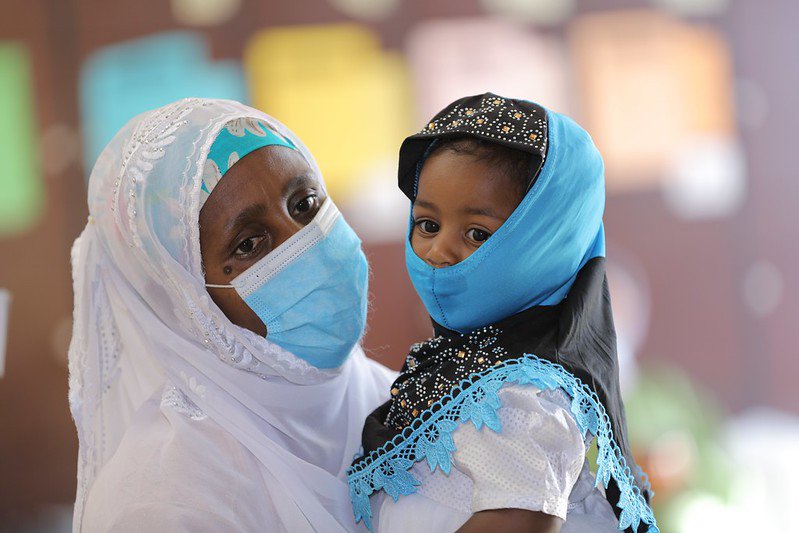As countries grapple with the coronavirus crisis, its implications for justice and the rule of law are becoming clearer.
The pandemic is creating a host of new legal challenges, just as more courts and legal aid services across the world are closing, reducing or adjusting their operations. Inevitably, the most vulnerable groups in society are suffering the harshest consequences.
Here our experts outline domestic and international responses to these pressures. Drawing on ODI research and emerging best practice from some of our partners, they emphasise the importance of flexible strategies, broader pathways beyond statutory systems and procedures, and seizing the opportunity to reform entrenched institutions.
Frequently asked questions
Megan Daigle: Covid-19 lockdowns are inflaming gender-based violence
Megan Daigle: Covid-19 lockdowns are inflaming gender-based violence
Since the Covid-19 pandemic began reports of domestic violence have surged globally, including in places already in crisis like the Rohingya refugee camps in Cox’s Bazar, Bangladesh. This is the ‘shadow pandemic’ that gender-based violence (GBV) specialists predicted, but for which most governments nonetheless failed to prepare.
This rise in GBV is not limited to the home, however. Attacks, arrests and persecution of people marginalised for their gender are also rising in public spaces, often perpetrated by police in the name of pandemic security.
In Uganda, women food vendors have been beaten by police, a shelter for LGBTQ+ youth near Kampala was raided and its inhabitants arrested, while sex workers have been subject to arrest, blackmail and violence. In Colombia and Peru, gender-specific lockdown rules have fueled police harassment of trans and non-binary people.
All the while, the same containment measures mean that survivors’ options are severely limited. Protection orders are out of reach and underfunded shelters are struggling to open their doors safely and reach survivors isolated at home.
It is vital now to keep pathways to justice open – especially shelters and alternatives to policing. Responses must be inclusive and reject roll-backs of rights (PDF) for vulnerable groups like poor women, sex workers and LGBTQ+ people. To that end, UNDP Mexico is building a network of municipal safe spaces and supporting safe exit strategies for GBV survivors, while Q-Initiative in Kenya operates a helpline for LGBTQ+ youth facing abuse in lockdown.
To confront invisible violence as the pandemic progresses, governments and funders must commit to sustained investment in creative strategies like these that facilitate justice and safety – but that do so on survivors’ own terms.
Frequently asked questions
Ed Laws: look to diverse justice systems during the crisis
Ed Laws: look to diverse justice systems during the crisis
As countries battle to contain Covid-19 and respond to the socioeconomic impact of the crisis, they are reliant on justice providers to respond to a wide range of justice concerns..
The administrative complexity, slow pace, and high-costs associated with statutory courts means that, in many settings, they are unsuitable to deal with these pressures in a fair and effective way.
We must therefore look to a broader range of pathways to respond to this crisis. Across a range of countries, customary and other non-statutory justice providers are widely used and fill a gaps given the shortcomings of statutory legal systems.
Alternative dispute resolution, traditional, tribal or community-based courts, and paralegals can all reduce the burden on statutory systems, while potentially providing faster and more satisfactory processes and outcomes to users.
These networks also have an important role to play in coordinating containment strategies, sharing health and other information with communities, and responding to rights violations by security services.
Of course, these providers may themselves be guilty of rights violations and procedural unfairness. All justice systems reflect particular power dynamics.
It is critical that we understand the role these systems play in their wider political and economic context, to ensure that well-intentioned support does not have unintended consequences.
Frequently asked questions
Marcus Manuel: how Covid-19 has provided beacons of hope for justice
Marcus Manuel: how Covid-19 has provided beacons of hope for justice
The Covid-19 crisis has tragically reduced people’s access to justice just as their need for it rises. Lockdown has resulted in a surge of domestic violence and the economic crisis is increasing disputes over land, employment and debt. Women are particularly at risk.
However, there are two beacons of hope:
First, countries have shown they are capable of rapid and radical policy responses. Many have quickly reduced prison populations and are experimenting with virtual courts.
The recognition that century old legal traditions can be reformed within months shows long called for reforms to tackle domestic violence, make greater use of grassroot legal defenders and scale up innovative technological approaches are possible.
Second, the tragedy of George Floyd’s death has led to global recognition of the need to tackle one of the most fundamental and intractable challenges of the justice systems – the creation of an accountable police service that serves the community. Despite decades of external efforts, reforming national police forces has yielded few sustainable results.
Hopefully this new global recognition will open up national debates in other countries such as India, draw on promising reform in countries such as Georgia and allow new approaches such as those in the Democratic Republic of Congo to be scaled up



